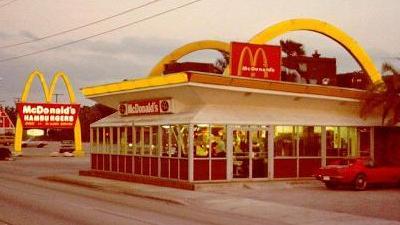There is currently a fight brewing over the minimum wage. Some groups want the minimum to go up to $15.00/hour. In response, other groups point out that some industries cannot afford $15.00/hour. They point to the fast food industry as an example. McDonald’s recently began rolling out kiosks in its stores. By 2020 they will be in every store in the US. You can read about it here.
If the $15/hour minimum wage is enacted, then I foresee the following:
- McDonald’s uses new technology to improve productivity.
- McDonald’s workers get a higher wage.
- Some workers are let go. Jobs are plentiful so that they will get new jobs. These jobs will be higher paying jobs in other industries.
- McDonald’s customers will experience better service.
BTW, $15/hour does not sound high to me. I earned the minimum wage of $1.60 back in 1971. Adjusted for inflation that is $10/hour in today’s money. You can check it yourself using the inflation calculator from the BLS, here.
Contrasting this with the attitude of the ancient Romans is interesting. Emperor Vespasian (69-79 A.D.) turned down an offer to have some heavy columns transported cheaply. He was worried about the effect on employment, saying ‘you must let me feed my poor commons'[1]. He was probably correct. Application of technology would have resulted in widespread unemployment and unrest in the Roman Empire.
Critics of a minimum wage hike echo Vespasian’s attitude toward technology. It is true that a minimum wage hike will cause unemployment if jobs are scarce. That is true, but if jobs are plentiful, a minimum wage hike usually helps workers. Rome was a totalitarian state. It had a small group of super-rich people who controlled everything. Everyone else was either poor or a slave. Demand was static because all of the money was with the rich, and they didn’t need more money. If you made money outside the system, the Roman tax collector took it. This is true of any totalitarian state. They are inherently corrupt. In a totalitarian state, the group in power enriches itself at the expense of the rest of society.
By contrast, America is a democracy. It has a large, prosperous middle class. Government is not corrupt. The middle class wants to increase its standard of living. This increases the demand for goods and services. As productivity rises, displaced workers go into better-paying jobs. This middle class is due to Christianity. Christianity advocates for the poor, rather than the rich. There is no ‘divine right of kings’ in Christianity. Based on the teachings of the Bible, Christians want a living wage for poor workers. Christianity also encourages the use of technology to improve living standards. This created the modern society.
McDonald’s isn’t doing anything wrong by automating its stores, and its workers will benefit from a higher wage. This dance between technology and rising living standards helps all of us. I hope it continues long into the future.
1) Gimpel, Jean. The Medieval Machine, Penguin Books, New York, NY 1976, p 9.
Copyright 2018 by Richard Patton Creative Enterprises, LLC. All rights reserved.
